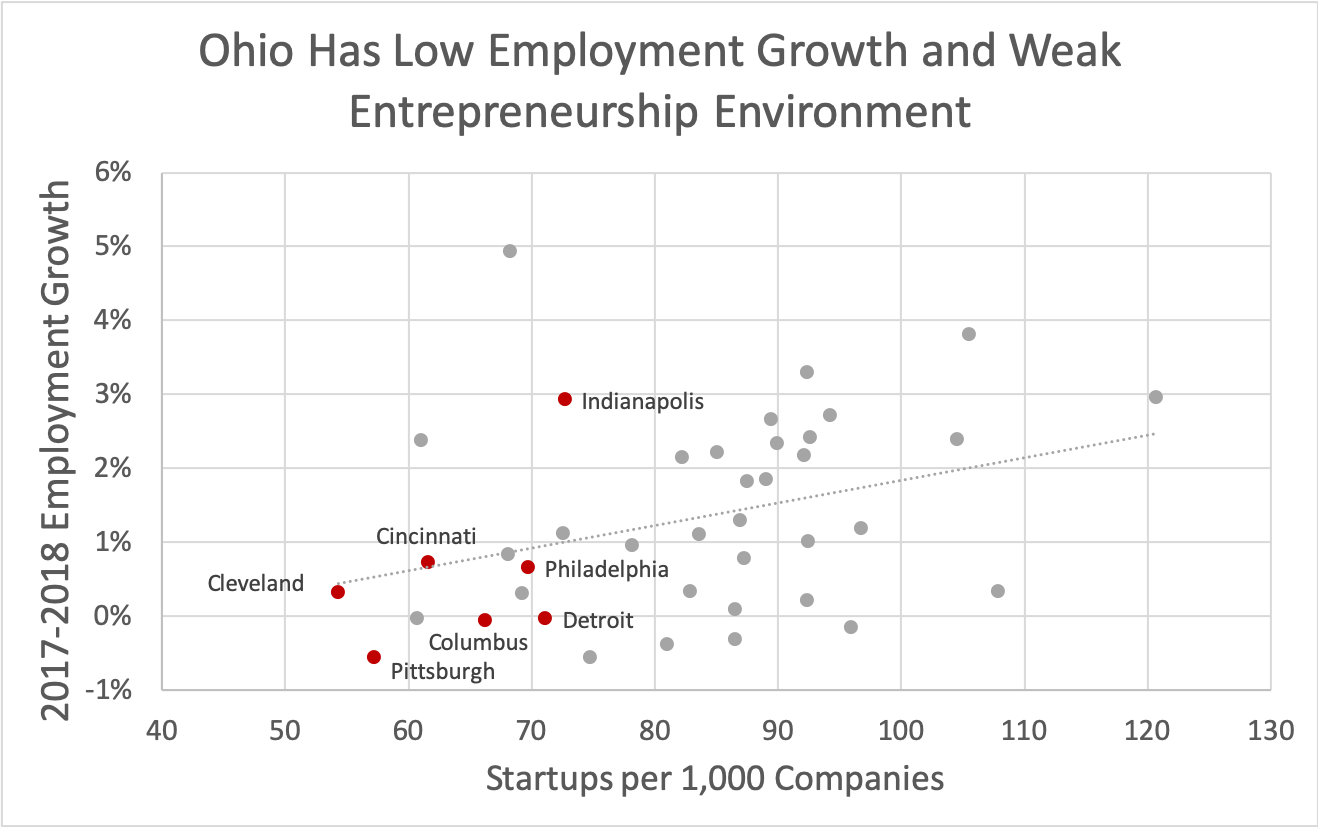Columbus’s startup community gets a lot of love, and we at Scioto Analysis like to celebrate it as well,as a startup ourselves. With that in mind, I was surprised when a colleague at lunch yesterday told me Columbus has one of the weakest startup industries in the country.
Of course, I went straight for the data. The Ewing Marion Kauffman Foundation publishes a comprehensive annual report on startup activity by metro area. Using IRS data collected by the Bureau of Labor Statistics, Kauffman compiles the “startup density” of the top 40 metro areas in the country, defined as the number of firms less than a year old that employ at least one person besides the owner per 1,000 total businesses.
Columbus’s startup density is in the bottom quintile nationally, only outpacing five other metro areas: Cincinnati, Providence, Milwaukee, Pittsburgh, and Cleveland. While the average large metro area has 83 startups per 1,000 businesses, Columbus punched in at 66 startups per 1,000 businesses in 2017, 20% lower than that average. Columbus looks a little better when you compare it to other regional metro areas, but still only falls in the middle of the list of seven metro areas in Ohio and neighboring states.
But doesn’t Columbus have a strong job market? And don’t small businesses drive job growth? Not so fast. By compiling jobs data from the Bureau of Labor Statistics, we can see that Columbus’s employment growth was basically flat from 2017-2018, placing it in the bottom quintile of large metro areas in job growth ahead of only San Diego, New York, Sacramento, Chicago, and Pittsburgh. Columbus even looks weak regionally, especially compared to high-growth Indianapolis and even against other Ohio cities Cincinnati and Cleveland.
Finally, let’s look at the relationship between the two variables. Using a standard correlational analysis, we can see that there is a weak relationship between startup density and job growth. Among our regional metro areas, six are clumped in the bottom left quadrant, showing low levels of both startup density and job growth compared to other large metros nationally. While Cleveland, Cincinnati, and Philadelphia follow the national trend fairly well, Pittsburgh, Columbus, and Detroit each have more sluggish job growth than their startup density would predict. Also note Indianapolis, which has 12% more startups per 1,000 businesses than the average regional city, but four times the job growth as the average regional city, making it the regional outlier.
Despite all these troubles, Columbus continues to grow in population and economic activity. It may have been that 2018 was a particularly bad year for Ohio, so these trends could reverse in 2019. That being said, it is hard to truly make the case that Columbus is a startup Mecca. Columbus is merely average regionally and quite weak nationally when it comes to startup prevalence.




